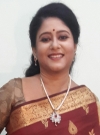Generating awareness among Indian population through survivors : an innovative model for developing countries
Association of Breast Surgery ePoster Library. Sarkar A. 05/15/17; 166238; P162
Dr. Agnimita Sarkar

REGULAR CONTENT
Login now to access Regular content available to all registered users.
Abstract
Rate & Comment (0)
Breast cancer is the leading cause of cancer in females in India. Due to the younger age at presentation, lack of infrastructure and financial contrains population screening program is unrealistic for most of the developing countries.The model for early diagnosis therefore rests on population awareness. The biggest block in generating awareness in India is lack of idea that breast cancer is a potentially curable disease . Misconception about loss of body image after surgery and chemotherapy is also a major cause for the conservative females to report to the health care system.
Aims of the study : To validate a new model for population awaress through performing arts by breast cancer survivors.
Study design : Patients treated for breast cancer were included in the study group. An advocacy group called “Disha”( meaning “direction “) was formed in collaboration with IPGMER Breast service. The survivors were trained in various performing arts , cancer awareness communication techniques , clinical breast examination and psycological counselling of the patients undergoing treatment for breast cancer.The acceptance of the general population in various subpopulation (socioeconomic and educational) were studied using questionarries used pre and post awareness campaign sessions .
Results: Generation of awareness was more when survivors were talking about cancer compared to non-medical health professional ( 91% versus 46 %). The change in perception was found in 88% of the study population. The significance was marginally more in higher in higher socioeconomic and educated subpopulation but had poor statistical significance (p=0.981)
Conclusion : The study could validate the significance of survivors in generating population awareness in India
Aims of the study : To validate a new model for population awaress through performing arts by breast cancer survivors.
Study design : Patients treated for breast cancer were included in the study group. An advocacy group called “Disha”( meaning “direction “) was formed in collaboration with IPGMER Breast service. The survivors were trained in various performing arts , cancer awareness communication techniques , clinical breast examination and psycological counselling of the patients undergoing treatment for breast cancer.The acceptance of the general population in various subpopulation (socioeconomic and educational) were studied using questionarries used pre and post awareness campaign sessions .
Results: Generation of awareness was more when survivors were talking about cancer compared to non-medical health professional ( 91% versus 46 %). The change in perception was found in 88% of the study population. The significance was marginally more in higher in higher socioeconomic and educated subpopulation but had poor statistical significance (p=0.981)
Conclusion : The study could validate the significance of survivors in generating population awareness in India
Breast cancer is the leading cause of cancer in females in India. Due to the younger age at presentation, lack of infrastructure and financial contrains population screening program is unrealistic for most of the developing countries.The model for early diagnosis therefore rests on population awareness. The biggest block in generating awareness in India is lack of idea that breast cancer is a potentially curable disease . Misconception about loss of body image after surgery and chemotherapy is also a major cause for the conservative females to report to the health care system.
Aims of the study : To validate a new model for population awaress through performing arts by breast cancer survivors.
Study design : Patients treated for breast cancer were included in the study group. An advocacy group called “Disha”( meaning “direction “) was formed in collaboration with IPGMER Breast service. The survivors were trained in various performing arts , cancer awareness communication techniques , clinical breast examination and psycological counselling of the patients undergoing treatment for breast cancer.The acceptance of the general population in various subpopulation (socioeconomic and educational) were studied using questionarries used pre and post awareness campaign sessions .
Results: Generation of awareness was more when survivors were talking about cancer compared to non-medical health professional ( 91% versus 46 %). The change in perception was found in 88% of the study population. The significance was marginally more in higher in higher socioeconomic and educated subpopulation but had poor statistical significance (p=0.981)
Conclusion : The study could validate the significance of survivors in generating population awareness in India
Aims of the study : To validate a new model for population awaress through performing arts by breast cancer survivors.
Study design : Patients treated for breast cancer were included in the study group. An advocacy group called “Disha”( meaning “direction “) was formed in collaboration with IPGMER Breast service. The survivors were trained in various performing arts , cancer awareness communication techniques , clinical breast examination and psycological counselling of the patients undergoing treatment for breast cancer.The acceptance of the general population in various subpopulation (socioeconomic and educational) were studied using questionarries used pre and post awareness campaign sessions .
Results: Generation of awareness was more when survivors were talking about cancer compared to non-medical health professional ( 91% versus 46 %). The change in perception was found in 88% of the study population. The significance was marginally more in higher in higher socioeconomic and educated subpopulation but had poor statistical significance (p=0.981)
Conclusion : The study could validate the significance of survivors in generating population awareness in India
Code of conduct/disclaimer available in General Terms & Conditions
{{ help_message }}
{{filter}}


